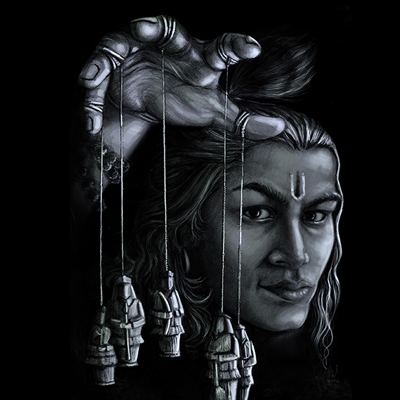Corporate Mahabharata | Aparna Sharma | Consulting Editor | The People Management
 In the business world they often say, ‘It’s a war out there’. A war room in business headquarters is used for crafting cunning strategy. Corporates equipped with banners, charts, computers and spreadsheets are ready to do battle in the marketplace. The customers are seen as ‘targets’. Competition is sought to be ‘killed’ and ‘head-hunters’ are pressed in service to poach rival talent. In a modern corporate setting one hears the rumblings from the battle field of a distant past. Often, the affairs of a modern corporation resembles a 21st century Mahabharata war.
In the business world they often say, ‘It’s a war out there’. A war room in business headquarters is used for crafting cunning strategy. Corporates equipped with banners, charts, computers and spreadsheets are ready to do battle in the marketplace. The customers are seen as ‘targets’. Competition is sought to be ‘killed’ and ‘head-hunters’ are pressed in service to poach rival talent. In a modern corporate setting one hears the rumblings from the battle field of a distant past. Often, the affairs of a modern corporation resembles a 21st century Mahabharata war.
The Mahabharata has captured the imagination of billions of people for years. It is a story of gory love and a war of redemption. It is a saga of revenge and renunciation. The mindless greed of Duryodhanana and the mindful valour of Arjuna are the principal combating forces in the Mahabharata story. Yet, behind these two protagonists are those unseen forces that guide human action. Krishna, the embodiment of divinity, Yudhisthira the icon of truthfulness, Karna, the tragic hero and Bheeshma the grand old man represents the many dimensions of dharma, the law governing our human universe.
A corporate war is not an exercise of excesses. A manager works towards optimisation of resources. He/she worries about how he/she can get maximum output using minimum mind power, manpower and machine power? That is the mantra espoused by lean, mean corporations. Mahabharata explores dharma as the efficient cause in the affairs of the human universe. Dharma is not about blindly following rules, it is about knowing how to maximise welfare and minimise losses. Yudhisthira’s war cry is ‘where there is dharma, there is victory’. According to the Mahabharata, victory rides on the wheels of dharma. This may go beyond the corporate world’s ordinary comprehension of success.
Success in the world of business is guided by decisions that managers make. Great decisions are a result of the right choice from many alternate options. Dharma is a treatise on the art and science of decision making. The conflict of choice while making a decision comes from multiple options. Only a human being has a real conflict of choice. An animal is very instinctive in the way it chooses to do something. A bull does not have a conflict of choice about whether or not it should respond to Nature’s call in the middle of a street. The conflict comes in the mind of a human being–in this instance, inside the mind of the farmer who owns the bull for instance! The farmer may feel ashamed of the indiscretion of his bull.
Dharma is ultimately a human pursuit. It is the application of discretion in our action. The actions of the animal world come largely from instinct. That is why we cannot blame a tiger for not being a vegetarian or a bull for being bullish. However, humans cannot always be slave to their instincts. That is why they have to apply discretion based on their dharma. Arjuna wins the right to marry Draupadi in a tough competition. Yet, he had to share his bride with each one of his four brothers. Draupadi, who likes Arjuna the most, had to be a dedicated wife to all the five Pandava brothers for the sake of dharma. Arjuna who dislikes lifting his bow and arrow against his own cousins, the Kauravas, had to fight them for the sake of dharma. Dharma directs our moral compass towards what needs to be done rather than what we instinctive like to do—like shooting down the boss, for example.
Dharma endows the corporate warrior the right to choose his battles. Here is a story of a corporate Mahabharata. On Nov. 26, 2008, terrorists attacked one of the most iconic buildings in Mumbai, the Taj Mahal Palace Hotel. For two nights and three days, the Taj was battle scarred and under siege, held by men with automatic guns. When the siege got over, we heard the story of the kitchen employees who formed a human shield to guard guests who were evacuating, and lost their lives in trying to protect their guests. Particularly remarkable was Karambir Singh Kang, the general manager of the Taj. Karambir worked to save his guests even after his wife and two sons, who lived on the sixth floor of the hotel, died in the fire set by the terrorists. What could be a better example of corporate dharma of a host in relation to his guests? Who knew Karambir would turn out to be Dharambir one day!


